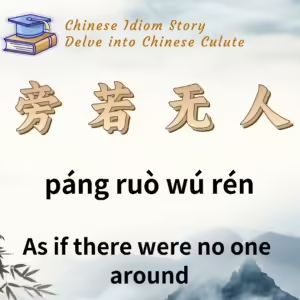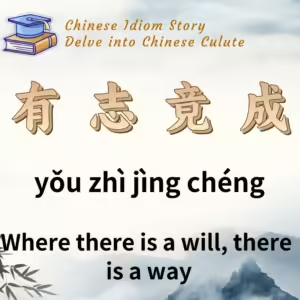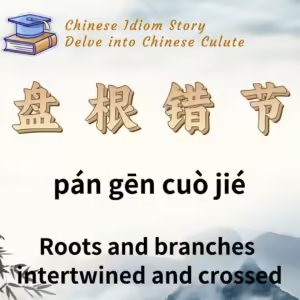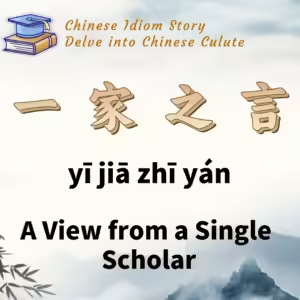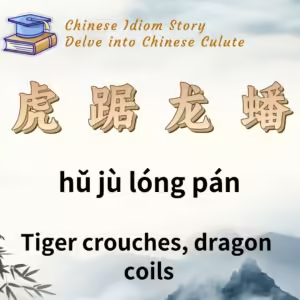
Chinese Idiom: 左顾右盼 (Zuo Gu You Pan)
English Translation: Looking left and right
pīn yīn: zuǒ gù yòu pàn
Idiom Meaning: This idiom describes a state of restlessness or indecision, where one is constantly looking around. It can also imply a sense of nonchalance or self-satisfaction.
Historical Source: “Yong Shi” (《咏史》) by Zuo Si (左思) of the Western Jin Dynasty.
Idiom Story:
Zuo Si, a notable figure from the Qi State of Linzi (modern-day Zibo, Shandong), is often associated with the idiom “Luoyang paper is expensive” (洛阳纸贵). This phrase refers to the immense popularity of his work “San Du Fu” (《三都赋》), which he spent ten years composing. The poem depicted the capitals and the customs of the Three Kingdoms era (Wei, Shu, Wu), and it became so widely acclaimed that paper prices skyrocketed in Luoyang due to the high demand for copies.
Despite his later success, Zuo Si was initially considered slow-witted in his youth and struggled with learning calligraphy and music. However, he was diligent and excelled in writing and poetry. Although he made significant contributions through his writing, he faced difficulties advancing in government and realizing his ambitions. His poetry often reflected the conflicts between scholars from humble backgrounds and the aristocratic families, expressing his frustrations with his unfulfilled career.
One of his famous poems in “Yong Shi” includes lines that reflect his aspirations and self-awareness. These lines are:
“铅刀贵一割,梦想骋良图。左眄澄江湘,右盼定羌胡。功成不受爵,长揖归田庐。”
These lines translate to:
“A lead knife is valuable for a single cut, dreaming to apply one’s ambitions. Looking left to calm the Yangtze and Xiang rivers, looking right to settle the Qiang and Hu tribes. Upon success, I will not seek titles, but will bow out and return to my home.”
In these verses, Zuo Si metaphorically compares his talents to a blunt lead knife that can only make one cut, and he expresses his wish to restore peace in both the southeastern and northwestern regions of the country. He also reflects on his desire to retire without seeking rewards once he has achieved his goals.
The phrase “左眄澄江湘,右盼定羌胡” (Looking left to calm the Yangtze and Xiang rivers, looking right to settle the Qiang and Hu tribes) from this poem was later simplified and generalized into the idiom “左顾右盼,” which describes someone who is indecisive or looking around restlessly.

